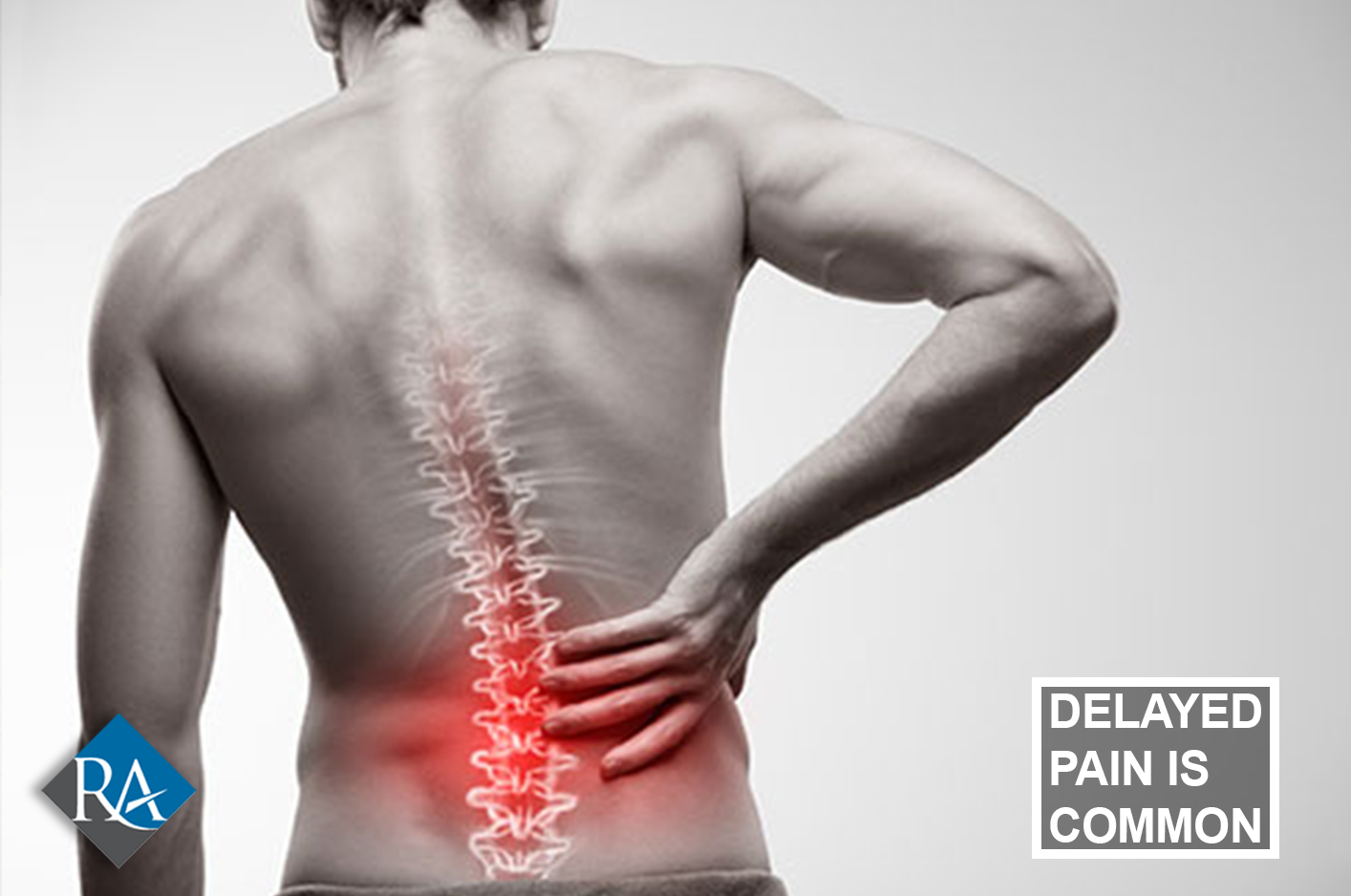
23 Sep Fine After a Car Accident? Think Again
You were in a minor car accident, but you are completely fine. You tell the other driver and your insurance company that there are no injuries, exchange details, and go on your way.
A few days later you experience headaches, pain in your neck, back, or shoulders, confusion and impaired thinking. The fact is that sometimes people simply don’t realize they were hurt or don’t experience symptoms until later. There are five key injuries which can result in delayed symptoms:
- Whiplash. Whiplash is particularly common in low speed accidents, and often doesn’t show any symptoms for a few days. Symptoms of whiplash include headaches, pain or stiffness in the neck or shoulders, and numbness in arms and hands. Whiplash injuries can be minor or serious, and proper diagnosis may require x-rays and other scans. Most cases of whiplash result from rear-end collisions at speeds lower than 14 miles an hour.
- Concussion or TBI. Traumatic brain injury can result in you feeling fine and having to be told you have a problem by others. Symptoms can include loss of memory, confusion, depression, personality changes, and issues with vision or hearing. Again, these can show up several days after the accident.
- PTSD. Post traumatic stress disorder results in nightmares and flashbacks. Children are particularly vulnerable to this. Many people have delayed symptoms or, worse, try to tough it out.
- Lower back injury. If you have a soft tissue injury in your back, it may not show up. In some cases you may only notice lower back pain after you sleep.
- Internal bleeding. Signs of internal bleeding include abdominal pain or swelling, dizziness, fainting, and large bruises.
In other words, you thought you were fine, but now know that you have serious medical issues that warrant hiring an attorney. This is never a good situation to be in. So, what should you do?
There are three things you should do:
- Call an attorney right away. In most cases they will not charge for an initial consultation, so you will be out nothing if you really are fine. If you turn out to have an injury, though, you will have a head start on being ready to file your suit. Choose an experienced attorney who specializes in personal injury complaints after a car accident. Bear in mind that there is often a statute of limitations on damages that can be tight.
- Get checked out by a doctor even if you think you are okay. Particularly, if you develop any delayed symptoms you should go to a doctor. If the symptoms indicate a TBI or internal bleeding go to the ER. Motor vehicle crashes are a major cause of brain injuries. However, it is often worth going in even if you are absolutely certain you are fine. Make sure that you keep proof that you sought medical treatment. Emotional and psychological injuries are equally valid, and you should get yourself checked out if you are having nightmares or depression. Early treatment is vital for PTSD.
- Do not sign a settlement or release right away. Insurance companies will often pressure you to do this. You need to wait until you are sure that you are not hurt. Your doctor can give you a good idea of when it is okay to agree to a settlement, depending on the nature of the accident and any concerns they may have.
You should also never file a claim on your own or try to represent yourself. You may be able to handle things with the other driver’s insurance, but even then having an attorney on your side can help encourage them to settle out of court and give you decent compensation.

Sorry, the comment form is closed at this time.